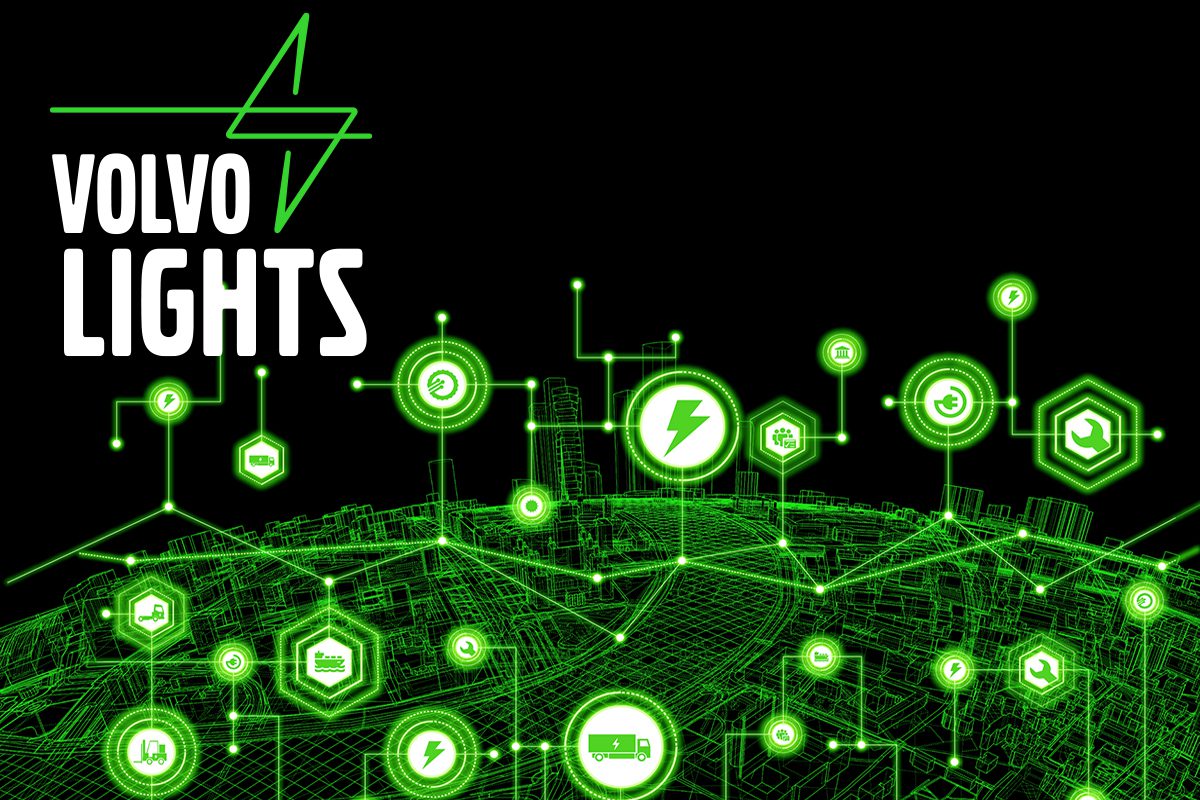A recently released guidebook from the partners of the Volvo LIGHTS (Low Impact Green Heavy-Transport Solutions) project is offering commercial fleets insight into how to move forward with the wide-scale adoption of battery-electric trucks.
The 22-page guidebook, Bringing Battery-Electric Freight Trucks to Market: From Demonstration to Commercialization, documents key insights gained as the project partners designed and implemented innovative programs and technologies critical for the widescale success of battery-electric freight movement. Since the projection’s inception in 2019, the partners worked strategically to help transform goods movement by designing a blueprint to introduce battery-electric trucks and equipment into the market at scale. Innovations that are critical to the commercial success of battery-electric freight movement were demonstrated at each step in the ongoing project, which will wrap up in the fall of 2022.
“By participating in the Volvo LIGHTS project, our team gained incredibly valuable experience that helped shape the comprehensive customer support model for our Volvo VNR Electric model, which was first commercialized in December 2020,” said Peter Voorhoeve, president, Volvo Trucks North America. “That said, we know that the transition away from diesel to electric power will involve far more than developing reliable truck technology. The Volvo LIGHTS project helped underscore the many areas in which public and private entities will need to collaborate to develop the ecosystem needed to support customers with successful battery-electric truck adoption – including the build out of public and private charging infrastructure, a robust dealer support network, incentives and strategies to reduce costs, a trained workforce of technicians, sales consultants, first responders, and more.”
The Volvo LIGHTS project, led by Volvo Group North America and South Coast Air Quality Management District (South Coast AQMD), is a public-private partnership made up of organizations proactively working to transform freight movement, including: NFI Industries, Dependable Highway Express, TEC Equipment, Shell Recharge Solutions (formerly Greenlots), Port of Long Beach, Port of Los Angeles, Southern California Edison, CALSTART, the University of California, Riverside CE-CERT, Reach Out, Rio Hondo College, and San Bernardino Valley College.
The Volvo LIGHTS Lessons Learned Guidebook, available for download from the project website, is organized into a series of short chapters:
- Establishing new partnerships
- Demonstrating Class 8 battery-electric vehicle innovations
- Advancements in warehouse equipment
- Reliable and cost-effective charging infrastructure
- Strategies to reduce total cost of ownership
- Cutting-edge job training needed
- Robust sales and service support
“By publishing the Volvo LIGHTS Lessons Learned Guidebook, Volvo Group hopes to shine a light on the key considerations that public and private entities need to plan for to successfully support the introduction of heavy-duty electric trucks across North America,” Voorhoeve continued. “Volvo Group, and Volvo Trucks with the VNR Electric offering, is committed to leading the commercial transportation industry’s transition to zero-emission solutions and looks forward to building on the success of this project as we work with other partners to accelerate the adoption of these vehicles in other states.”
The Volvo LIGHTS project was made possible by a $48 million award to South Coast AQMD from the California Air Resources Board as part of California Climate Investments. South Coast AQMD contributed $4 million from the Clean Fuels Fund and awarded the Volvo Group a $45.6 million contract to design and implement the LIGHTS project. Volvo and its partners promised no less than $45.7 million in matching contributions to increase the total project value to more than $91 million for South Coast AQMD to administer. The three-year project took place in Southern California in regions within the top 25% of the state’s disadvantaged communities.



